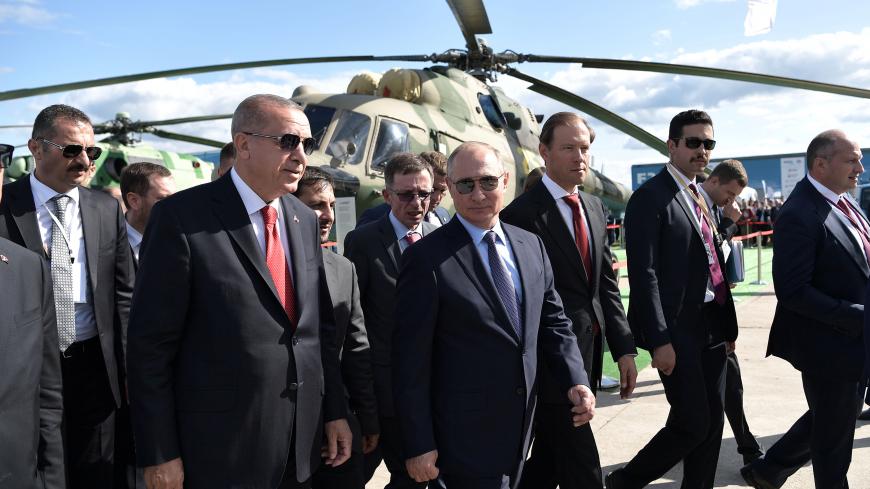In the bumpy Turkish-Russian relationship in Syria, crisis situations have produced a pattern of face-to-face meetings between the two countries’ presidents, with Ankara typically ending up as a giver and Moscow as a taker. The latest summit between the two leaders, prompted by the escalation in Idlib, came as another confirmation of that pattern.
Tensions in the rebel-held province shot up Aug. 19 after a Syrian fighter jet struck a pickup of the Faylaq al-Sham group escorting a Turkish military convoy, which, according to Ankara, was taking reinforcements to the Turkish observation post at Morek in the southernmost corner of Idlib. The situation grew into a crisis between Ankara and Moscow as Syrian forces encircled the Morek base, where about 200 Turkish soldiers are stationed, while marching into the key town of Khan Sheikhoun.



